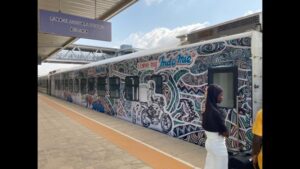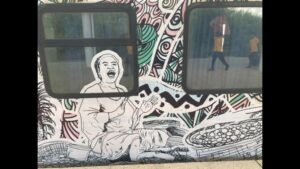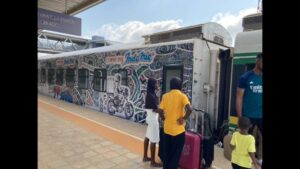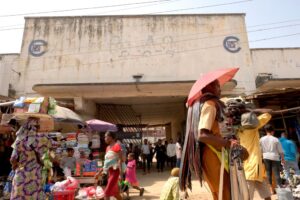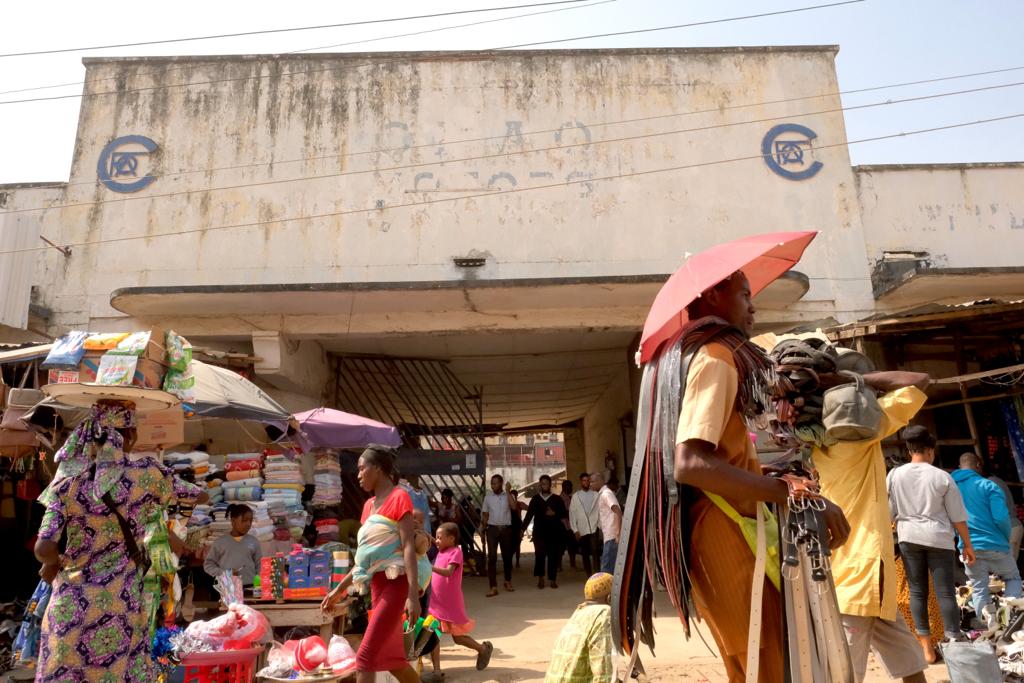
Ibadan: an evocative encounter provokes dreams of Nigeria’s enduring possibilities
Tucked away in the recesses of my memory, between nursery rhymes and martial music, is a dusty volume labeled Ibadan.
The Ibadan of my childhood was the longed-for interregnum between the routine of Lagos with its endless terms at primary school. I had fun with school friends in Lagos to be sure, but Ibadan held the promise of dew-freshened mornings and reunions with treasured cousins on UI campus and in Bodija Estate. In 1962 my godfather, Dr Majekodunmi was made the Sole Administrator of the Western Region so my two siblings and I spent holiday time with his son Desmond in the Government House in Ibadan. My enduring memory of that holiday was the presence of Lt. Murtala Muhammed. Not long back from service in the Congo, he was assigned as aide-de-camp to the sole administrator. Uncle Koye recounted the story of a parcel being brought into his office and his young ADC flying in, grabbing the parcel and taking it to his own office where he opened it to make sure that it presented no danger to his boss. To us, he was a fascinating figure; he must also have enjoyed the wide- eyed admiration of these three youngsters, because he spent a good deal of his free time with us teaching us how to play billiards and particularly impressing us with lessons on how to strip down and clean a self-loading rifle.
The highlight of the drive to Ibadan was always the pitstop in Shagamu where I first remember tasting the delights of suya, which at the time we thought was not available anywhere else in the world. The Lagos/Ibadan road itself held its own mystery for my adolescent imagination because ‘Penkelemesi’,the mercurial Ibadan-based political leader, Adegoke Adelabu had lost his life in 1958 in a motorcar accident on his way back to Ibadan from Lagos.
This was the Ibadan of the fifties and the sixties a hotbed of art and creativity; it was here that Fela Ransome-Kuti first unveiled his Koola Lobitos. The University of Ibadan, within the modernist structures of Maxwell Fry and Jane Drew, incubated the talents of Wole Soyinka, Chinwa Achebe, Emmanuel Ifeajuna, Christopher Okigbo, JP Clarke and many others, who honed their craft and politics in the storied institution. The University was the birthplace of the Mbari Mbayo Club and the campus where in 1962, pioneer Peace Corps volunteer Marjorie Michelmore provoked an international incident when, on the way to the post office, she accidentally dropped the postcard that she intended to post to her boyfriend back in America to bring him up to date with her experiences in Africa. It was also the Ibadan of the Agbekoya Parapo uprising in the late 1960’s that I remember as an act of grass root resistance to creeping governmental corruption.
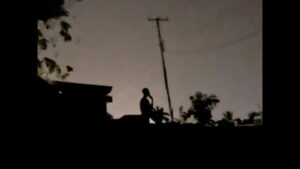
Ibadan had been the epicentre of the agricultural revolution that enabled ambitious projects for the newly independent Nigeria, such as the first sky scraper in West Africa ‘Cocoa House’, the Broadcasting and Television Stations, WNBS and WNTV both the ‘First in Africa’. These advancements were the result of deliberate government policy , dedicated and committed hard work. The Moor Plantation was the engine room of the revolution; established in 1899 as a model farm with the objective of improving agricultural output, it implemented formal agricultural training and had established a botanical laboratory as far back as 1915.
Built in the 1950’s the state of the art Liberty Stadium was constructed with direct labour by the regional Ministry of Works; it hosted the first world championship boxing fight in Africa, in which Nigeria’s Dick Tiger retained the WBA (World Boxing Association) and won the WBC (World Boxing Council) middleweight title from America’s Gene Fulmer in 1963.
With these early life memories, I set out for a seven day stay with seven young visual artists among the seven hills, Oke Padre, Oke Ado, Oke Mapo, Oke Are, Oke Sapati and Oke Mokola that originally circumscribed Ibadan.
Fragmented Memories
The railway line from Lagos to Ibadan was completed in 1901’s. It’s glory days were in the colonial period when it served as a vital link in the chain that transported raw materials from inland to the ports on the coast, but had long since faded into oblivion. Over the last few years it has experienced a rebirth, and today runs an efficient twice daily service of clean and comfortable cars in creative, contemporary livery.
Present day Ibadan, is alive with the buzz of possibility, it is a thriving congested nexus of energy, a pulsating market metropolis reminiscent of Balogun market in Lagos but without the agbero edge. Walking through congested market streets faded signage of once household names, like CFAO and GB Olivant on imposing structures, provide an ironic back drop to bustling individual enterprise. It is a pent-up coil of creative potential looking for direction, anticipating youthful, inspired political leadership to harness the energy and catapult it into its future.
Like so much of Nigeria, perhaps even more than most, Ibadan feels primed for progress needing only self-confident leadership with the imagination to see that a collection of cocoa pods can build a skyscraper.


